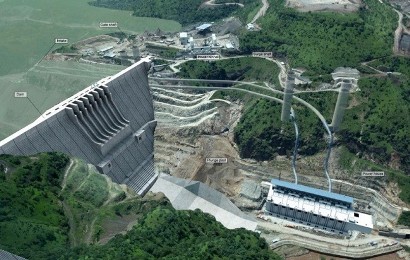Ethiopia to invest billions on green economy projects
By Tesfa-Alem Tekle
May 4, 2016 (ADDIS ABABA) – Ethiopia said it will be investing billons of Dollars to execute various Climate Resilient Green Economy projects across the country.

The projects are expected to transform the country’s economy to a green one and make them resilient to the effects of global warming.
The new target, the minister said, seeks to reduce greenhouse gas emission, advance economic growth as well as create job opportunities for women and youth.
According to the minister, $ 50billion of the total budget will be allocated to the construction of low-carbon emission and green infrastructures.
Citing to a study conducted on the country, she said Ethiopia annually needs $7.5 billion for the implementation and transformation of its climate-resilient green economy.
Financial sources will be secured from the government and Ethiopian people, investors, financial partners and from revenues collected from trades in the carbon market.
After mobilising a range of financial sources to cover funding needs for the appropriate bodies to carry on the Climate resilient Green economy activities, it will then be run fully and independently by the Ethiopian government.
Ethiopia is one of the many nations most exposed to the effects of global warming.
Due to its vulnerability, Ethiopia is among some African countries currently hit by severe food insecurity caused by El Nino-induced drought.
The drought which is worst in decades led to sharp deterioration in food security and massive drop in agricultural and pastoral production forcing over 10 million Ethiopians to depend on food Aid.
Last month Ethiopia was among the 170 world nation which signed the historic Paris climate deal at UN Headquarters.
Ethiopia has been spearheading Africa’s common position on climate change to make sure the continent speaks with one voice in global climate change negotiations.
Climate change generates various kinds of risks and opportunity for Ethiopia that would affect all sectors in the country.
Preliminary projections suggest that climate change can have a sizeable impact in Ethiopia’s economy amounting 7-8% of GDP loss per year, with stronger impacts in later decades and on the poor.
Being a low emission country both at aggregate value and per capita Ethiopia’s economy has generally low carbon intensity.
However, if the growth trajectory continues on a same pace, UNDP says Ethiopia’s greenhouse gas emissions will increase from the current 155 Metric tons of carbon dioxide equivalent (Mt CO2e) to almost 400 Mt CO2e in 2030 – an increase of more than 150% and roughly the amount of green house gas South Africa emits today.
Under a low carbon growth trajectory, however, studies show that Ethiopia could offset in the order of 250 Metric Tonne (Mt) of carbon dioxide equivalent per annum. At the modest carbon price, this has the potential to generate around 2.5 billion per annum, which is twice as much as Ethiopia’s export revenue of coffee today.
Ethiopia intends to become a middle income, carbon neutral and climate resilient economy by 2025.
(ST)
